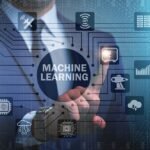The Importance of Creating a Culture of Data
/ /
In today’s data-driven world, organizations are presented with a wealth of information that has the potential to drive informed decision-making and transformative outcomes. However, data alone does not guarantee success. To truly harness the power of data, businesses must foster a culture that values and embraces data-driven practices at all levels. In this blog post, we will explore the significance of creating a culture of data within organizations and the positive impact it can have on business growth, innovation, and overall success.
- Empowering Informed Decision-Making: A culture of data encourages employees to rely on data and insights when making business decisions. By promoting evidence-based decision-making, organizations can minimize reliance on gut feelings or intuition, leading to more accurate and informed choices. Data-driven decision-making helps mitigate risks, seize opportunities, and achieve better outcomes in various aspects of business operations.
- Driving Innovation and Agility: Data-driven cultures foster innovation by encouraging employees to explore new ideas and test hypotheses through data analysis. When teams have access to data and the tools to analyze it, they can identify emerging trends, understand customer preferences, and develop creative solutions to meet evolving market demands. A data-centric culture empowers organizations to remain agile and responsive in dynamic business environments.
- Improving Operational Efficiency: Data-driven insights can uncover inefficiencies and bottlenecks within business processes. By identifying areas that need improvement, organizations can optimize operations and streamline workflows. A culture of data promotes continuous improvement, encouraging employees to seek data-driven solutions that enhance productivity and reduce costs.
- Enhancing Customer Experiences: Data is a powerful tool in understanding customer behavior, preferences, and pain points. A culture of data enables organizations to create personalized and seamless customer experiences. By analyzing customer data, businesses can tailor products and services to meet individual needs, increasing customer satisfaction and loyalty.
- Fostering Accountability and Transparency: A data-driven culture instills accountability in decision-making and promotes transparency within the organization. When data is readily available and shared across teams, employees can understand the rationale behind decisions and take ownership of their roles. Transparency in data-driven practices also builds trust among employees, fostering a collaborative and open work environment.
- Identifying Growth Opportunities: Data-driven organizations have a competitive advantage in identifying growth opportunities and capitalizing on market trends. By continuously monitoring data and market insights, businesses can spot emerging opportunities, enter new markets, and diversify their offerings strategically.
Posted in Blogs


































